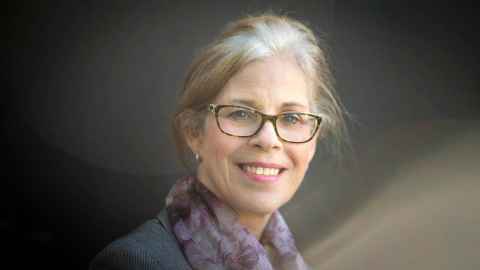Statement from the Vice-Chancellor on mātauranga Māori and science
14 December 2021
The Vice-Chancellor, Professor Dawn Freshwater, comments on mātauranga Māori and science.

The debate that initially started as about the relationship between mātauranga Māori and science in the secondary school curriculum in Aotearoa New Zealand has intensified and extended over recent weeks, with a number of overseas commentators adding their opinions.
Unfortunately, the debate has descended into personal attacks, entrenched positions and deliberate misrepresentations of other people’s views, including my own. This important and topical debate deserves better than that.
I am calling for a return to a more respectful, open-minded, fact-based exchange of views on the relationship between mātauranga Māori and science, and I am committing the University to action on this.
In the first quarter of 2022 we will be holding a symposium in which the different viewpoints on this issue can be discussed and debated calmly, constructively and respectfully. I envisage a high-quality intellectual discourse with representation from all viewpoints: mātauranga Māori, science, the humanities, Pacific knowledge systems and others.
I recognise it is a challenging and confronting debate, but one I believe a robust democratic society like ours is well placed to have.
In this commitment to action, I acknowledge the University of Auckland’s particular responsibilities in this debate as a custodian of academic freedom and free speech. Seven of our academics wrote the letter in good faith to The Listener in July 2021 that sparked the debate in the first place, and many of our academic experts have contributed to the discussion since then.
This is exactly what should happen in a world-class, research-led university like ours. Academics have for centuries fearlessly led the public discussion of ideas, including ideas that are controversial and even offensive. In New Zealand this has included debate on Te Tiriti, the Vietnam War, the Springbok Tour of 1981 and, more recently, gender rights. These debates have ultimately led to a more informed society, which is more democratic, resulting in societal change.
Underpinning this is an unwavering commitment to academic freedom and freedom of expression. As I stated in my original message to staff in July when The Listener letter was published, and my opinion piece on freedom of expression in August, our seven academics were free to express their views on mātauranga Māori and science. Others in our community were free to disagree and to present the logic of their objections.
There is no contradiction in the University’s support for the rights of our academics to disagree on matters that can be considered controversial, while at the same time acknowledging and being respectful in any debate that might follow.
Media enquiries:
Lisa Finucane
Mob: 021 677 216
Email: l.finucane@auckland.ac.nz